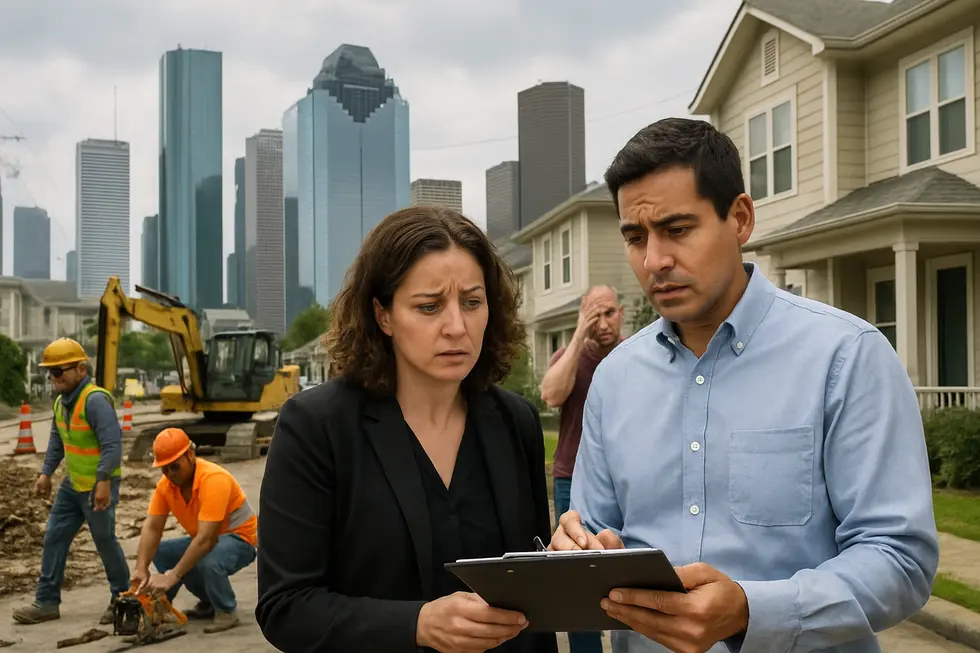The ongoing skilled trades shortage presents significant challenges for property managers and investors alike. Finding qualified contractors for repairs, maintenance, and upgrades has become more complex, influencing rental income, tenant satisfaction, and property value. For Property Management Houston firms, understanding and addressing this gap is crucial to maintaining competitive edge and ensuring smooth operations. As the demand for skilled labor outpaces supply, proactive strategies and local industry insights are more vital than ever for property investors aiming to optimize their investments in Houston’s dynamic real estate market.
Understanding the Skilled Trades Shortage and Its Effects on Houston’s Real Estate Market

On a bustling morning in Houston, the property management team gathers in their office, overlooking a city skyline dotted with residential buildings and active construction sites. Outside, the scene is a hive of activity—contractors in hard hats move briskly across sites, and maintenance crews race against the clock to meet looming deadlines. Inside, the team faces an urgent challenge: delayed repairs due to a persistent shortage of skilled tradespeople.
A property manager glances at their digital tablet, reviewing repair requests from tenants in nearby residential complexes. The list is long—ongoing plumbing issues, faulty electrical systems, broken HVAC units—but the response times are growing longer. Contractors who once promised quick turnaround now face weeks-long waits, their schedules stretched thin by labor scarcity. This shortage creates a ripple effect, impacting daily operations and tenant satisfaction.
The scene is tense but resolute. The team discusses alternative strategies, like decentralizing maintenance efforts or exploring new local trade partnerships. They understand that addressing these delays is not just about fixing appliances; it’s about maintaining the trust of Houston’s vibrant neighborhoods and preserving property value. The background of cranes and scaffolding serves as a reminder that Houston’s real estate market continues to expand, but this growth depends heavily on the skilled trades to sustain it.
As the team navigates this challenge, the impacts are palpable. Tenants express frustration over prolonged repair times, which can tarnish the reputation of property management firms. Delays also lead to increased costs and potential safety hazards if issues are left unresolved. Yet, amidst the urgency, there’s a sense of resilience. The team considers innovative solutions, such as forming partnerships with local trade schools for specialized training or leveraging technology to better schedule maintenance tasks.
This scene encapsulates the broader issue facing Houston’s property management sector: a skilled trades shortage that threatens to slow down the city’s real estate momentum. While the obstacles are real, proactive measures and community collaboration can buffer these impacts, ensuring that properties remain well-maintained and tenants remain satisfied. Houston’s skyline, ever-changing and dynamic, mirrors the evolving strategies of property managers who refuse to let these shortages hinder their mission. Their resilience underscores the importance of understanding how local labor market dynamics directly influence investment strategies in Houston’s vibrant real estate landscape.
Strategies for Property Managers in Houston to Overcome the Trade Skills Gap

In Houston’s competitive real estate landscape, proactive property management requires more than traditional oversight. To bridge the skilled trades gap, forward-thinking managers are embracing innovative solutions that foster collaboration and build local capacity. One key approach involves organizing regular training sessions that bring together diverse professionals—apprentices, experienced contractors, and property staff—into a dynamic environment focused on skill enhancement. These sessions not only update tradespeople on the latest maintenance techniques but also promote team cohesion.
Forming strategic partnerships with local trade schools and technical colleges enables property managers to cultivate a pipeline of skilled workers tailored to the city’s needs. Collaborating with these institutions allows for customized training programs, internships, and mentorship opportunities, ensuring a steady flow of qualified tradespeople ready to serve Houston’s property portfolios.
Leveraging technology has become essential in modern property management. Digital platforms facilitate maintenance scheduling, real-time communication with contractors, and tracking of work progress. Implementing a centralized digital dashboard enhances transparency and efficiency, reducing downtime caused by trades shortages. Maintenance requests can be prioritized and assigned swiftly, ensuring tenants experience minimal disruption.
Fostering strong relationships with skilled contractors also plays a vital role. Developing trust and open communication channels ensures timely responses and high-quality repairs. Building a preferred vendor list based on reliability and expertise simplifies decision-making during urgent situations, avoiding delays caused by limited trade availability.
In Houston’s vibrant neighborhoods, property managers can witness the tangible results of these strategies—well-maintained properties, satisfied tenants, and resilient community relationships. By investing in ongoing training, forming local partnerships, and leveraging technology, property managers not only overcome the skilled trades shortage but also enhance operational sustainability. For those seeking comprehensive support, exploring resources like owner services can provide additional tools and guidance tailored to navigating today’s trade challenges.
Implementing these innovative solutions ensures property management in Houston remains adaptive and resilient, turning potential disruptions into opportunities for growth and community improvement.
Why is it important
Addressing the skilled trades gap is essential for property managers and investors in Houston seeking to maintain property value, tenant satisfaction, and operational efficiency. Embracing innovative solutions, nurturing local trade partnerships, and staying adaptable will position property management firms to navigate these challenges successfully. By doing so, property investors can safeguard their assets and continue building upon Houston’s vibrant real estate market, ensuring long-term success amidst industry shifts.
Partner with 360 Realty & Property Management to navigate the skilled trades gap and optimize your Houston investment.
Learn more: https://www.360realitymanagement.com/free-rental-analysis-request-form/
About us
As a full-service Houston leasing and property management company for the greater Houston and surrounding areas, 360 Realty Property Management provides everything from property listings, to property management, to eviction services, and everything in between. Whether you’re looking to make Houston your home or you want to manage your investment in the Houston property market, we’re here to help you succeed. Our services include the day-to-day operations of managing your property, such as providing support, problem solving, and repairs for tenants during their leases, collecting rent, and inspecting the property for appropriate maintenance by tenants. We can also help with bookkeeping, lease agreements, and marketing your property, allowing you to enjoy all the benefits of property ownership without the day-to-day tasks that come with it.

